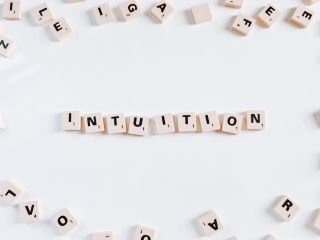Unconscious
Is Intuition Actually Unconscious?
Intuition likely involves at least some unconscious processes.
Posted November 6, 2023 Reviewed by Devon Frye
Key points
- A recent article calls into question the role of the unconscious in human decision-making.
- Conscious decision-making will generally benefit tricky or more complex decisions.
- But intuition does involve some unconscious processes, which sometimes benefit our decision-making.
- There are also times when taking a break can facilitate improved decision-making.

A short while back, I read an article from Newell and Shanks (2023). The article focused on the issue of unconscious decision-making [1]. Their central conclusion boils down to “there is no free lunch when it comes to tricky decisions; you have to do the thinking.” [2] Since I had written in the past about the false dilemma when it comes to dual-process perspectives [3], I thought it would be a worthwhile article to explore (and discuss in light of what I had written previously).
The Central Issue
The central issue Newell and Shanks discuss (and seek to refute) is the claim that people can offload conscious reasoning to an unconscious part of the brain. This is the belief underlying both the arguments made by Gladwell (2005) in the book Blink: The Power of Thinking Without Thinking [4], and the argument that we should sleep on difficult problems (allowing our unconscious mind to help us solve them).
The authors spend the bulk of the paper reviewing several studies and dissecting them (mostly with a reasonable degree of detail). Some of the studies show support for the potential of unconscious processes to aid decision-making, some show no differences, and some show an edge to conscious thinking.
They also argue that anecdotal evidence of such offloading (e.g., shower thoughts, eureka moments) ignores all the times such moments do not occur. Even if they do occur, generally the ideas are not fully formed and require conscious effort to flesh them out. So, at most, we can conclude that sometimes (perhaps on rare occasions) we unconsciously come up with a worthwhile idea to explore consciously.
The final point worth noting is that Newell and Shanks argue that unconscious is not synonymous with intuition. Intuition occurs via our recognition of similarities between a current decision situation and prior experience. Just because it occurs quickly doesn’t mean it occurs unconsciously.
It is this final point that I want to dissect a little further. While I would agree with them that there is little evidence supporting the claim that intuition operates unconsciously, there is also little evidence that it doesn’t. In fact, much of the argument Newell and Shanks make is that decision-making has to occur either unconsciously or consciously without entertaining the possibility that both types of processes might be involved to various degrees (depending on whether we’re talking about intuition or more active reasoning).
The Unconscious and Intuition
I’ll be the first person to admit that I generally operate under the assumption that intuition occurs unconsciously. Newell and Shanks claim that the two are not synonymous because, quoting Herbert Simon (1992), “intuition is ‘nothing more and nothing less than recognition’” (para. 40), meaning that it doesn’t represent reasoning at all.
They further contend that when we make conscious decisions, we’re aware of the steps we take to get to those decisions. I would agree with this, but they also argue that with intuition there are no steps—that it is a simple matter of familiarity leading to a response with no unconscious process involved to connect the dots from familiarity to response.
But this is where it seems their quest to rebut the central claim about the unconscious runs headlong into a wall. While they claim that we consciously sense familiarity before intuition occurs, there’s no evidence to support that claim, and certainly not that familiarity always occurs with intuition. But even if some level of familiarity was a part of the process of intuition, we don’t consciously identify how the current situation is related to prior situations, so some type of processing is occurring that isn’t conscious [5].
Simon (1992), in discussing how we recognize a friend, argued that “we are aware of the fact of recognition, which gives us knowledge about our friend; we are not aware of the processes that accomplish recognition” (p. 155, emphasis in original). As such, Simon was arguing that intuition is indeed an unconscious process—“the situation has provided a cue; this cue has given the expert access to information stored in memory, and the information provides the answer” (p. 155). He further emphasized that “we do not have conscious access to the processes that allow us to recognize a familiar object or person” (p. 155), meaning that even the encoding of the information that allows recognition to occur operates outside conscious awareness (making it unconscious).
So, it seems more likely that the brain operates predictively, as Bach and Schenke (2017) argued, and that a lot of this prediction occurs outside of conscious awareness. This doesn’t necessarily mean it is fully unconscious, but it likely doesn’t require the same amount of conscious effort as more deliberative processing. This gets to the heart of claims by Pennycook et al. (2019), that most decision situations elicit intuitive responses with little conscious thought, as well as the claims I made when discussing the false dichotomy between System 1 and System 2 that most decisions likely involve both unconscious and conscious processing to various degrees.
What to Make of All This
Let’s return to the idea that “there is no free lunch when it comes to tricky decisions; you have to do the thinking.” The argument made by Newell and Shanks is mostly accurate. Most of the time, conscious decision-making is going to benefit “tricky decisions.” We’re usually not going to divine the solution unconsciously. But there are exceptions.
First, the more closely our expertise and prior experience align with the characteristics of a given decision situation, the more likely we can simply rely on that expertise and experience to produce intuitive solutions. Are these fully unconscious in terms of their production? Maybe, maybe not, but they are certainly not nearly as conscious nor cognitively effortful as consciously thinking through a problem to derive a conclusion. We can split hairs at this point and debate the line between the conscious and unconscious, but Gladwell’s arguments in Blink do have some merit—with lots of constraints around when our intuitive response is sufficiently valid.
Second, there’s also evidence that taking a break can benefit decision-making, but again, there are constraints to that. For example, as Grohol (2009) reports, taking a break from thinking about a complex decision can benefit someone if they have more expertise. Whether sleeping on it will improve decision-making is debatable (as discussed by Blanding, 2015), but there are some times when stepping away can provide the opportunity for a fresh perspective.
Whether this is the result of unconscious processing or merely the resetting of the frame of reference we put around a decision is impossible to say. But there are times when we can frustrate ourselves due to an inability to solve a problem or make a decision, and at such times, it would be disadvantageous to simply pour more resources into trying to do so and expect to divine the answer. So a break may be warranted.
From all this, my concluding takeaway points would be this:
- We’re probably not going to solve complex problems intuitively unless we have enough relevant expertise and experience to rely on—even then, some conscious processing is likely involved.
- Trying to overthink an expertise-based intuitive response can lead to worse decision outcomes—we can think ourselves out of a good decision.
- There are times when continuing to think about a decision or problem can be disadvantageous—those are the times when taking a break can facilitate the decision-making process.
References
Footnotes
[1] The article was written to plug their book, but that doesn’t undercut the legitimacy of the argument they made.
[2] Lest you think I engaged some deep massive brain power to reach this conclusion, rest assured I did not. It was the subtitle teaser text leading into the article itself.
[3] That whole System 1/System 2 perspective has little, if any validity underlying it.
[4] For those who may wish to read a summary of it, it can be found on Wikipedia. The book is a good read, but it very much oversimplifies the evidence we have acquired on intuition.
[5] While Newell and Shanks argue that we don’t have to “posit magical unconscious processes,” to produce intuitive responses, their argument fails to account for how that recognition occurs in the first place.




